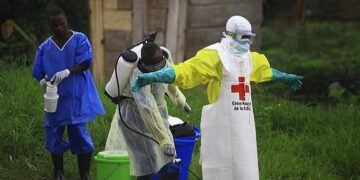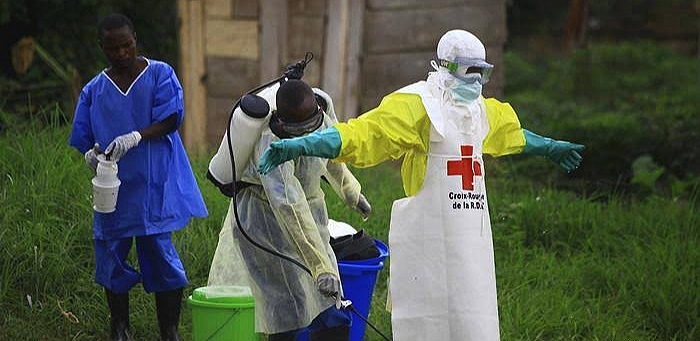By Ebi Kesiena
Amid reports of an outbreak of the Sudan strain of Ebola in Uganda, the Federal Government of Nigeria has urged its citizens and residents to avoid all non-essential travel to countries with confirmed cases of the Ebola virus disease (EVD).
To mitigate the risk of an outbreak in Nigeria, the government has implemented a contingency plan, including heightened surveillance at points of entry and an optimised working group actively monitoring the situation. Measures are also in place to scale up testing if necessary.
In a statement on Sunday, the Nigeria Centre for Disease Control (NCDC) confirmed that no Ebola cases have been detected in Nigeria. However, the agency is working closely with relevant ministries, departments, agencies, and partners through the National Emerging Viral Haemorrhagic Diseases (EVHD) Technical Working Group to monitor the situation and strengthen preparedness efforts.
NCDC Director-General, Dr Jide Idris, emphasised that the country’s health system is on high alert. An emergency response team has been deployed to maintain round-the-clock surveillance and ensure early detection of potential cases. Measures taken include:
Updating the EVD emergency contingency plan
Strengthening surveillance at entry points
Enhancing diagnostic capacity for EVD testing in designated laboratories across international airports and the National Reference Laboratory, among others.
While the World Health Organization (WHO) has not recommended travel or trade restrictions to Uganda, the NCDC continues to advise Nigerians against unnecessary travel to Ebola-affected regions.
The NCDC has also issued guidelines for individuals in Nigeria with recent travel history to affected countries. Those who develop symptoms such as fever, muscle pain, sore throat, diarrhoea, weakness, vomiting, stomach pain, or unexplained bleeding should:
Immediately call the 6232 hotline or the state Ministry of Health hotlines for assessment and testing.
Stay in place to prevent further spread through shared transportation.
Await dedicated health responders for evaluation and possible transfer to a designated treatment facility if necessary.
Additionally, Dr Idris reassured the public that the NCDC is committed to managing multiple disease outbreaks, including Lassa fever, meningitis, diphtheria, mpox, measles, and anthrax.
The agency will continue to provide periodic updates and collaborate with the WHO and African regional health authorities to monitor developments and share critical information.

































